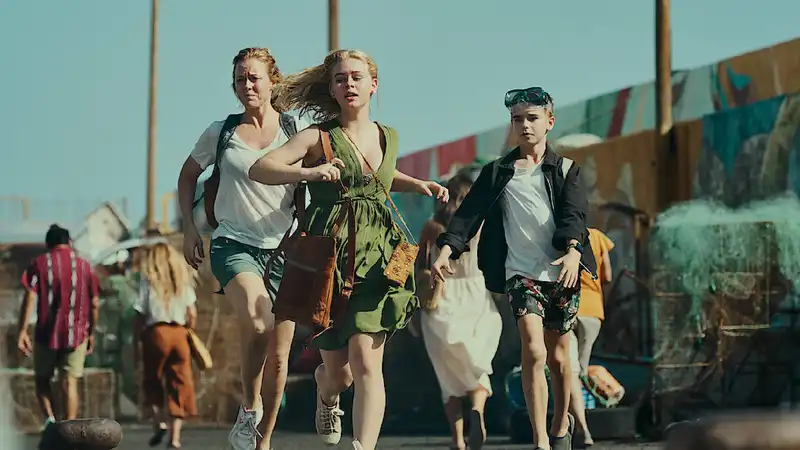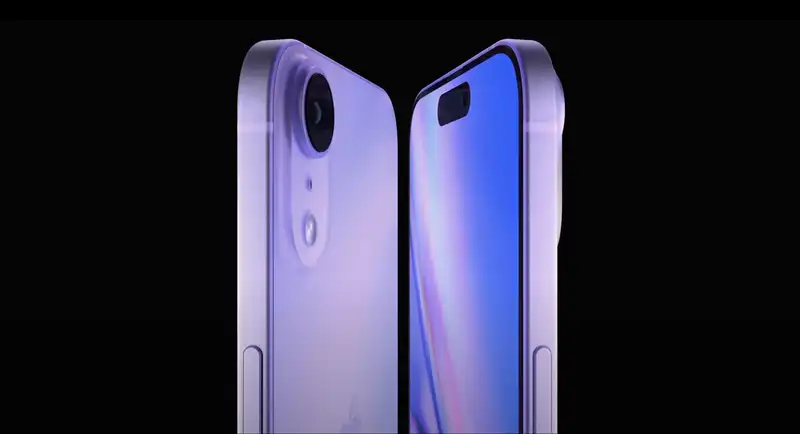The success of a movie musical can be judged directly by how painful it is for the kids returning to the musical world to keep their mouths shut and their feet firmly on the ground. As for “Wicked,” let's just say mission accomplished.
When I walked into the preview screening of the prequel to “The Wizard of Oz,” I had high hopes. Add me to the list of annoying “Wicked” fans who fondly recall singing “Defying Gravity” in high school recitals and fantasize about singing a medley of “Dear Old Shiz” and “Dancing Through Life” at chorus POPS concerts. Yes, I am “That Girl”. Yes, I am “That Girl,” and I make no apologies for that.
Given that we've waited over 20 years for this adaptation to hit the big screen, the rather unfair question it faces is whether it was worth the wait. We have been building this film in our heads for 20 years. And I think many of us secretly needed the “why now?” justification. Well, we got it, and not only is it a stunning visual beauty that would have been impossible 10 or 20 years ago, but given the current political climate, the plot is more timely than ever.
After the credits rolled (there is no post-credits scene), my friend and I looked at each other and said, “I didn't expect to like it this much.” We were prepared for our high expectations to be betrayed and were pleasantly surprised to be proven wrong. It would have been nice to see Kristin Chenoweth (Glinda) and Idina Menzel (Elphaba) in the roles they played on Broadway in 2003. However, there are plenty of clips showcasing “Wicked” from that era. Now is the time to embrace the new Shiz class, and this cast has more than earned its tusk.
After Ariana Grande was announced as Glinda (formerly known as Galinda), many fans, myself included, worried that her vocals would pop too much. As expected, her musical numbers have a certain amount of pop to them, but Grande does a good job of it.
By nature, Glinda is overly attention-seeking, and every actress who has brought this character to life has enjoyed making Glinda's quirks her own. Grande's Glinda pays homage to Chenowith's version of the character, but adds her own fun twist to the vocals and characterization.
People may underestimate Grande. Because, for whatever (sexist) reason, everyone loves to make fun of pop stars. But Grande got her start in the musical world. She may add some pop trilling to a few notes, but she can sing a final like nobody's business. I jotted down two words after the inhuman high notes of her “No One Mourns the Wicked”.
Additionally, many “Wicked” fans were concerned about Grande's repetition of “Popular” after the singer shared a preview of her performance. I was one of them. In that short audio clip, the vocal choices sounded a bit choppy, and fans of the musical criticized her for trying too hard to sound like Chenoweth.
These are all valid concerns based solely on this one-minute clip. But that is not the whole picture. As soon as one hears the entire song and sees the accompanying scene, the song hits instantly. Grande's choice of acting is nothing short of hilarious, and the musical-style staging is a perfect match for the over-the-top things Glinda does in this number. I don't think it would stand alone as strongly as it does as part of the soundtrack, but on screen it is absolute perfection. Glinda may have a bit of pop glamour in the film Wicked, but Grande is completely her own person.
There is no better word than “powerhouse” to describe Cynthia Erivo's vocals. Elphaba is an incredibly complex character. She is strong and fierce, yet at the same time deeply empathetic and vulnerable. Whoever plays Elphaba, who is not a bad witch, has to play contradictory personalities at the same time. Erivo handles it with aplomb.
In “The Wizard and I,” Elphaba's vocals are a fun and quirky aspect of the film. One of my favorite movie scenes is when Glinda notices that Elphaba pretends not to care about what others think of her when she really does.
Despite Elphaba's cold prevarication, the bulk of the musical focuses on her journey to actually accept and love herself. And Erivo shows us that on a platter at the end of “Defying Gravity.” Elphaba's acceptance of her younger self is a powerful image for us castoffs, and we can learn a thing or two from her. If you can sing through this number without chills and tears, you might just be the Tin Man.
Elivo's voice is so gorgeous and powerful that I wish the pop embellishments had been removed from her number to stay true to the original. Her songs definitely don't need jazz, and doing so distracts the audience from the impact of Elphaba's emotional journey; even songs like “I'm Not That Girl” suffer from this tendency. The melancholic sentiments are a bit too strong for what is supposed to be a very stripped-down, raw song.
However, the lyrics of Elphaba's “So if you care to find me” are a good example of a pop treatment done really well with a strong payoff. That said, there are occasional cases where it is used, but I think it's overdone - though not enough to seriously affect the performance. It just bothered me a bit. Of course, the breathtaking harmonies when Elphaba and Glinda sing together are nothing more than a physical manifestation of their chemistry and on-screen magic.
“Wicked” pulls no punches in its world-building. From the first 20 seconds of the film to the final moments, everything is adorned with stunning visuals, special effects, stunning costumes/hairstyles, and a small homage to “The Wizard of Oz” that serves to tie the two projects together. I found the use of the “Wizard of Oz” font on the title card oddly charming.
It is clear that every decision in this film was made with care and love for the original work. Between the vibrant colors and the perfectly designed Royal Palace of Oz, one feels transported to a land that feels both old and new. As for the Emerald City, the city and its people are basically the Capitol of The Hunger Games, but green and steampunk.
My only aesthetic complaint was the design of the talking animals. Naturally, in the stage version, the Animals are humanoid. No wonder; it was a bit of a shock to see CGI animals walking and talking (it's Nanny Bear). By the time Dr. Dillamond came on the scene, though, I was almost used to it. If there is a better way to do this, we have yet to find it.
One of the major drawbacks of recent movie musicals is that they refuse to fully embrace the musical part of the movie musical concept. At times, trailers don't even want to acknowledge that there is singing, and they don't even mess with a single bar. Wicked has none of these problems. Everyone involved at all levels of this production has fully embraced the musical's origins and knows exactly who the audience is. The film “Wicked” is a musical through and through, and the soundtrack more than proves it.
Anyone who has seen “Wicked” on Broadway will know that the entire run is two hours and 45 minutes. Except that this is part one. I had expected the film to feel drawn out and to point out the litany of useless things that were added to maximize the running time. That was not the case at all. I have a terrible attention span, and I didn't want to see a single non-existent watch.
I can't think of a single scene that would have been cut or shortened (but this may be a hot take). The entire film flows seamlessly and smoothly, with a perfect balance of music and dialogue. I had correctly assumed that part one would cut off at the same point as the musical intermission.
However, I didn't mind the long running time one bit, even without the intermission, which is quite unusual for me. However, my opinion might change again if Part 2 were as long as it is, as the plot and musical numbers become less frequent in the second half of the film. All in all, “Wicked” defies gravity and I am eagerly awaiting the second half.
.









Comments